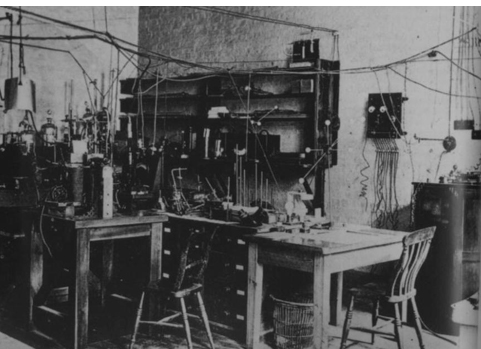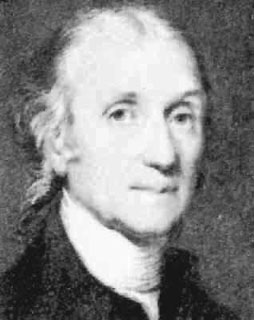About Cavendish
Henry Cavendish
Birthplace: Nice, France
Location of Death: Clapham, England
Occupation: Chemist, Physicist
Nationality: England
Henry Cavendish was regarded as the most distinguished British men of science of his day. Among his many achievements are the demonstration of the existence of hydrogen as a distinct substance, water as a compound and determining the density of the earth. Cavendish was also one of the pioneers of electrical research of his time. Clark Maxwell, who edited some of his papers, was intrigued by his character. "Cavendish cared more for investigation than publication. He would undertake the most laborious researches in order to clear up a difficulty which no one but himself could appreciate, or even was aware of."(Maxwell)
During his youth, Cavendish attended Hackney Academy, a private school near London, for 7 years. In 1749, Cavendish entered University of Cambridge, but left three years later without completing a degree. He then returned home to live with his father in London, where he began his research career by helping his father, a talented experimental physicist, who was a member of the Royal Society.

Cavendish's interests extended over a wide field of natural philosophy, and every subject of investigation he approached with a strict quantitative examination. Cavendish was noted to be able to perform some extraordinarily accurate experiments with crude equipment. Some of his experiments involving electricity mentioned how he would make himself part of the electrical current to notice how intense the electrical shock was under different circumstances, he would even check his conclusions by making a servant replace him in order to observe the servant's reactions. Despite his extensive research, his shy personality avoided controversy. As a result he published very little of his work. Despite his shy nature, after Cavendish's death in 1810. Clark Maxwell discovered packets of unpublished papers displaying important practical research. These unpublished papers, were later edited by Maxwell and eventually published, gaining Cavendish recognition and respect among his country, and abroad.

www.chumpysclipart.comBirthplace: Nice, France
Location of Death: Clapham, England
Occupation: Chemist, Physicist
Nationality: England
Henry Cavendish was regarded as the most distinguished British men of science of his day. Among his many achievements are the demonstration of the existence of hydrogen as a distinct substance, water as a compound and determining the density of the earth. Cavendish was also one of the pioneers of electrical research of his time. Clark Maxwell, who edited some of his papers, was intrigued by his character. "Cavendish cared more for investigation than publication. He would undertake the most laborious researches in order to clear up a difficulty which no one but himself could appreciate, or even was aware of."(Maxwell)
During his youth, Cavendish attended Hackney Academy, a private school near London, for 7 years. In 1749, Cavendish entered University of Cambridge, but left three years later without completing a degree. He then returned home to live with his father in London, where he began his research career by helping his father, a talented experimental physicist, who was a member of the Royal Society.
Cambridge University(founded 1284)

Cavendish's interests extended over a wide field of natural philosophy, and every subject of investigation he approached with a strict quantitative examination. Cavendish was noted to be able to perform some extraordinarily accurate experiments with crude equipment. Some of his experiments involving electricity mentioned how he would make himself part of the electrical current to notice how intense the electrical shock was under different circumstances, he would even check his conclusions by making a servant replace him in order to observe the servant's reactions. Despite his extensive research, his shy personality avoided controversy. As a result he published very little of his work. Despite his shy nature, after Cavendish's death in 1810. Clark Maxwell discovered packets of unpublished papers displaying important practical research. These unpublished papers, were later edited by Maxwell and eventually published, gaining Cavendish recognition and respect among his country, and abroad.

Living a conservative life, Cavendish
accumulated extensive wealth throughout his life from his Royal family
inheritance. When Cavendish died at the age of seventy eight he was one
of the richest men in England. Many years later, the University of
Cambridge benefited from the generosity of the Cavendish family
through the gift of the Cavendish Professorship of Experimental Physics
and the Cavendish Laboratory.

Cavendish Laboratory, Cambridge 1920


